The relatively small property I mentioned last week had a typical L-shaped, narrow contractor front walk that was totally obscured by overgrown Taxus (Yew) and a temporary back walk. Other than one existing tree, there was only poor turf in the front and on the tree lawn. The back was bare soil and an assortment of junk and sawn logs (from a dead tree). The sod was stripped from the front and the grade was adjusted. The planting beds were amended with local leaf humus. If I were amending the soil today, I would also add enlarged aggregate (Haydite, Turfact, Infield Soil Conditioner) for drainage and aeration. The front walks were reconfigured into wide sweeps that now allow unfettered access, from either side of the property, to the front door while journeying through the landscape. The new front walk is permeable, with existing stone from the back now set into gravel. A large boulder, unearthed during the soil prep, was used as a focal point amid the Amsonia in the front bed.
In back, the curvilinear theme of the front walk and existing concrete driveway was continued with a wide sweeping walk to the back staircase, allowing for easy conveyance of groceries and packages, plus an arc and tangent patio, both poured in concrete. The dimensions of the patio were sized to those of a small canvas gazebo that the client had previously purchased.
After the plantings were installed, the landscape was mulched with either gravel or shredded bark, both from local sources, depending on the needs of the plants. The tree lawn was amended with gravel to facilitate drainage and the growth of a groundcover Sedum. Although the back walk and patio are concrete, the soil has been graded so that runoff flows to the back of the property where much of it is absorbed by the heavily mulched area between garages. Little water has been used to maintain this xeriscape after the first year of establishment.
To create a low maintenance, deer resistant, sustainable landscape, I selected plants that would be tough enough to withstand the vagaries of Cleveland weather and drought resistant yet wet tolerant for short periods of time as well as varied in texture, form, height, and seasons of interest. The plant palette includes perennials, grasses, both deciduous and evergreen shrubs, and a few trees. Several genera are repeated in front and back in order to create a unified landscape. Some plants, such as the silver stemmed Perovskia, were chosen for their color echo of the house paint. The grasses are beautiful in all seasons, particularly when blowing in the Cleveland winds. Many of the chosen plants have beautiful fall color and/or bloom such as Amsonia hubrichtii, Perovskia, Sedum ‘Angelina’, Physocarpus ‘Diabolo’, and Heptacodium miconiodes. Although only drought resistant plants were used, this landscape does not look like a desert landscape but one that has a strong sense of place in that several plants are commonly used in this area. In addition, habitat has been created where, formerly, there was none. Hopefully, others will begin to imitate this lovely xeriscape so that they can lower their water and sewer bills while creating beauty.


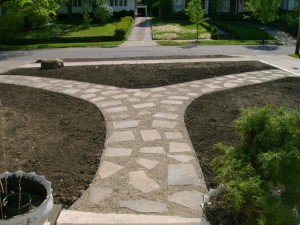
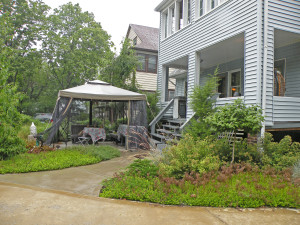
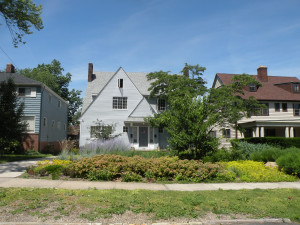
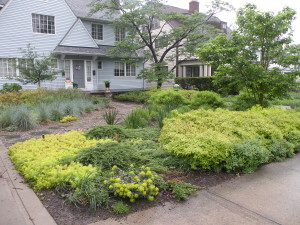
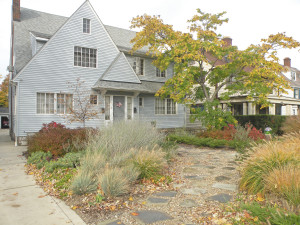
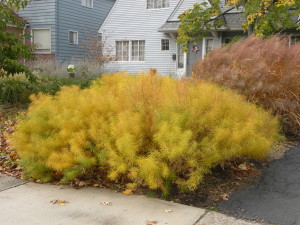
0 Comments